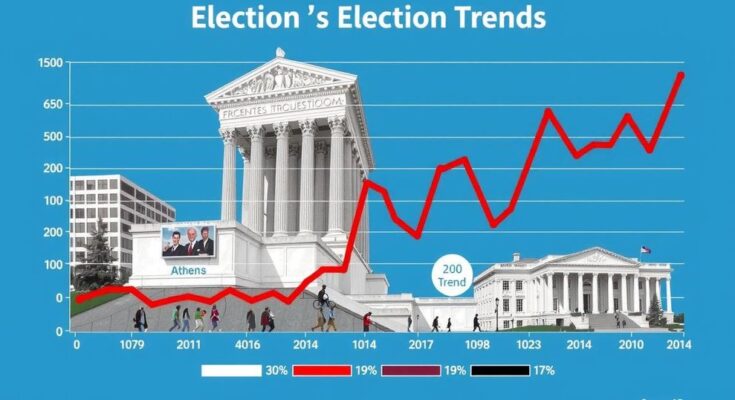A coalition is mobilizing to recruit poll workers for the November presidential election due to a shortage exacerbated by harassment and an aging workforce. With campaigns set for National Poll Worker Recruitment Day on August 1, the aim is to encourage civic engagement across America. The recruitment is critical for ensuring operational polling places as misinformation has eroded public trust.
A coalition of election officials, civic organizations, businesses, and community groups is engaging in a nationwide campaign to recruit poll workers for the upcoming November presidential election. This initiative addresses a significant shortage of polling staff, exacerbated by concerns over harassment faced by election officials and an aging workforce. The campaign will leverage social media platforms on National Poll Worker Recruitment Day, August 1, to encourage Americans to partake in the electoral process by serving their communities at polling places. The effort aims to fill hundreds of thousands of vacancies, ensuring a smooth voting experience for citizens.
Poll workers play a vital role in facilitating elections, welcoming voters, distributing ballots, and managing polling places. With approximately 100,000 ballot locations nationwide, there is an urgent need for volunteers. The U.S. Election Assistance Commission has established National Poll Worker Recruitment Day to support local efforts in securing sufficient poll workers, offering resources and strategies for outreach. Power the Polls, a leading nonprofit organization, reported that they successfully recruited over 700,000 new poll workers during the tumultuous 2020 election cycle.
Despite past successes, many jurisdictions cite a continuing high demand for poll staff, particularly in cities like Boston and Detroit, where the need is acute. Each locality often faces distinct challenges—from training younger, less experienced recruits to addressing the reliability of willing volunteers. Moreover, as misinformation about elections persists, officials are taking proactive measures to reassure the public about voting security. Experiences from various counties show that hands-on involvement as poll workers not only aids election processes but can also transform skeptics into advocates for electoral integrity. Overall, serving as a poll worker is an impactful and accessible way for citizens to engage in the democratic process while fostering community connection.
The growing shortage of poll workers in the United States has become a pressing issue especially leading into significant election cycles such as the upcoming presidential election in November 2024. Traditionally, a demographic challenge exists where many poll workers are older and have opted out of service for health safety concerns, particularly during the COVID-19 pandemic. The push for recruitment is crucial to ensure that polling places are adequately staffed to facilitate a smooth electoral process. The local elections across the country require engaged citizens to uphold democratic practices, thus this recruitment effort signals a collective responsibility toward fortifying the electoral framework. Various organizations, including the U.S. Election Assistance Commission and Power the Polls, have taken initiative to streamline the recruitment process by providing resources and facilitating outreach efforts to communities. By capitalizing on social media and community events, they aim to appeal to a wider audience, encouraging civic engagement among diverse populations, including younger individuals eager to participate in the electoral process.
In conclusion, the recruitment of poll workers is essential to maintain the integrity and functionality of the electoral process in the United States, particularly as the November presidential election approaches. The ongoing initiative by a coalition of election officials and civic organizations highlights the importance of community involvement in democracy. By responding to the urgent need for volunteers, citizens not only support elections but also bridge gaps in public confidence surrounding the voting process. This collective effort fortifies democracy and underscores the value of every individual’s participation in shaping their governance.
Original Source: enewscourier.com




